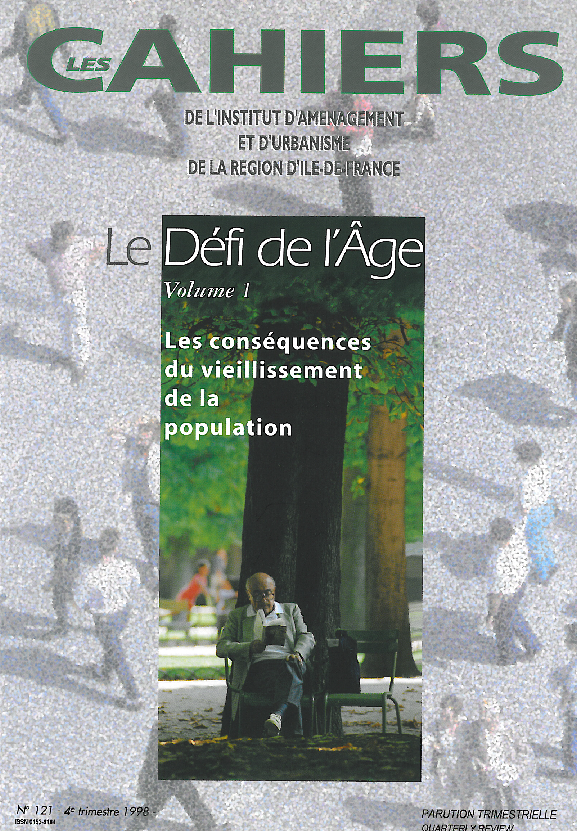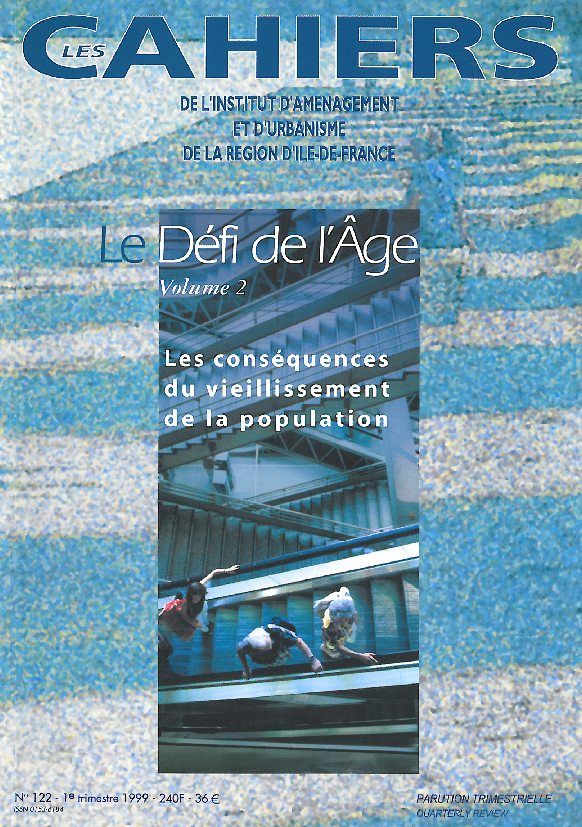The consequences of the ageing of the population
In 1997, the IAU île-de-France initiated a prospective reflection on the increasing number of persons 60 and over in our society, and on its effects on retirement, services, transport, leisure activities.
The sign of the times: residents of Ile-de-France are settling in the region! An increasing number of children are born and live there, while the most elderly move less frequently to the provinces upon retirement. Over the next half century, this trend should reinforce the unprecedented increase (it should double by the year 2050) of an “elderly” mobile, healthy and more urban population that holds a significant part of the economic power. Not surprisingly, Ile-de-France will thus join the national ageing process. This may change the very image of life in the capital-region; a change that will perhaps be less pronounced than in other parts of the country.
Concerning retirement, many questions remain unanswered. They involve the quality of life of elderly people and the preservation of their autonomy, housing and accompaniment as well as the age of retirement, its financing and the purchasing power of pensioners. There are many possibilities and, more than ever, debate is indispensable. Predictable effects are also difficult in the health sector, as age is not in itself a measurable factor of health conditions.
The issue no. 121 contains contributions to the first two seminars organized by the IAU île-de-France in late 1997 and early 1998 and which relates to the phenomenon of the ageing of the population in France and Ile-de-France and the issue of ageing and health.
This study is linked to the following theme :
Economy

